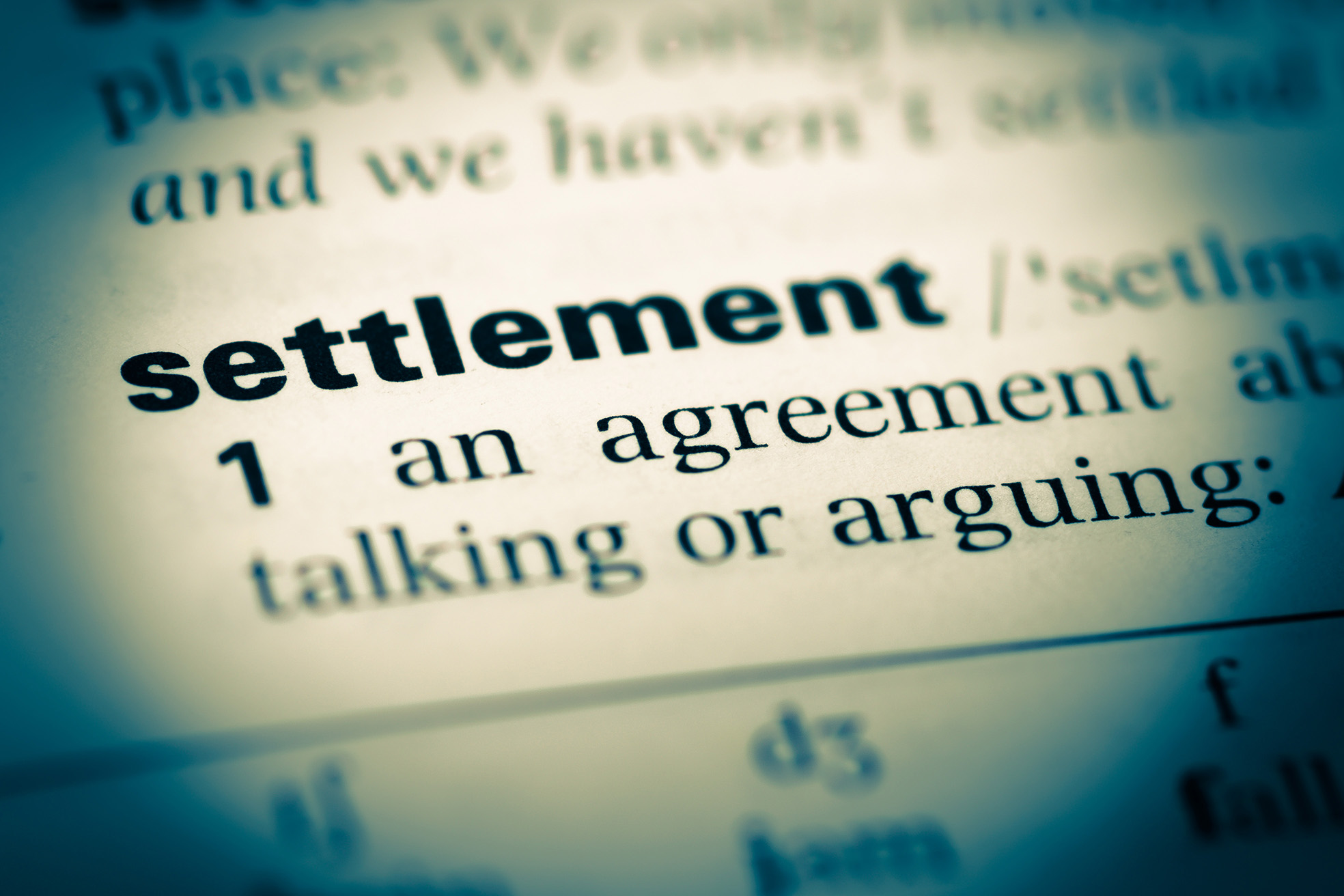Insurance companies are notorious for trying to avoid paying out on policies or offering far less than a claim is worth. Most people are not prepared for this and fail to realize that they can negotiate with insurance adjusters to get a better settlement. Victims of personal injury disputes are often dealing with recovery and rarely know how to navigate the conversation to get fair compensation for their injuries. Insurance adjusters count on the average person being unfamiliar with their tactics and having limited knowledge of personal injury law and their rights. It is important to not allow yourself to be pressured into agreeing to less than you deserve. Hiring a personal injury attorney is the best way to protect your interests.
Negotiating Personal Injury Settlement Process
A settlement negotiation begins with one side making a demand or an offer. This initial amount is generally much higher or lower than the claim is worth because both parties know the other side will counter it. The details of the claim will be challenged and defended between the insurance adjuster and the personal injury attorney. It is the personal injury attorney’s job to fight for your rights and ensure that you receive the best settlement possible. As they go back and forth, they will adjust the amount until they reach a number both sides are willing to agree to. Before negotiations start, an expert personal injury lawyer should discuss with their client what the realistic outcomes are and determine what an acceptable settlement would look like. The insurance adjusters likely have a similar process that details how much they are willing to settle for.
What is the Role of an Insurance Claims Adjuster?
The insurance adjuster is the person who investigates the claim, determines liability, and negotiates the settlement. The investigative process for the insurance company is similar to the one carried out by the personal injury attorney. They will speak to their insured party, go over the evidence, and collect witness statements. It is their job to act in the best interests of the insurance company, which means doing what they can to justify reducing or denying your claim.
Subjects of Negotiating with an Insurance Adjuster
While each claim is different, there are a few main points that insurance adjusters generally focus on.
- Liability – Was their insured at fault for the accident and your injuries? Do you share any of the fault, and if so, how much?
- Coverage – Does the insurance policy cover the situation?
- Injuries – What was the extent and severity of your injuries? Is there any long-term or permanent damage? Were there any pre-existing injuries?
- Treatment – What type of medical treatment did you receive? How long did you receive treatment? Were all of your treatments necessary? Were all of your treatments related only to the injuries sustained in the accident?
Can You Negotiate a Settlement on Your Own?
There are some instances where you may want to handle the situation yourself. If you have professional experience in the insurance or legal field or if you have minimal damages, then settlement negotiations may not need expert legal help. However, most of the time, if it is necessary to file a personal injury claim, you most likely need a personal injury lawyer working on your behalf. Situations where a personal injury lawyer is worth hiring include but are not limited to [1]:
- Severe or extreme injuries
- Long term or permanent disabilities
- Long term or lifelong treatment needed
- Expensive medical equipment needed
- You are unable to return to your job
- You are unable to work at all
- The accident involved fatalities
- The defendant is a government entity
- The defendant is a corporation
Qualities Necessary to Successfully Negotiate a Personal Injury Claim
In order to manage the stress and uncertainty involved in settlement negotiations, there are a few things to keep in mind. While you cannot control the actions of the other party or their insurance company, you can control how you approach and react to them.
Be Organized
The best way to handle most situations is to have everything in order. Have your facts straight and keep records of all communications and related documents. Know what needs to be done and what deadlines you are working with. Your attorney will help a great deal with this, but you need to provide them with what they need and be open and clear with them.
Be Patient
One of the hardest parts of a personal injury case is the waiting. Waiting for responses, waiting for records, and going through other lengthy protocols or processes can be nerve wracking. It is normal to want to get things handled and done with as soon as possible, but unfortunately, the bureaucracy of the legal system takes time. The insurance adjuster knows how long these things can take and is counting on your impatience to motivate you to accept a subpar settlement right away.
Be Persistent
While it is important to remember to be patient, some adjusters also try to draw out the process even longer. They may be vague or stubborn, dragging their heels, trying to frustrate you into giving up. Do not allow them to play games with you. If you have an attorney, they can stay on top of the adjuster and help you hold your ground against these tactics.
Be Calm and Straightforward
Losing your temper or becoming emotional will not help your case and can even hurt it. The adjuster will not be swayed by compassion or sympathy. They have a job to do, and part of that job involves discrediting you and your claims as much as possible. If you have to interact with them, it is best to remain calm and keep a civil tone. However, you do not want to be timid or passive. You know that you are right. Present your case in a clear, concise, and confident manner.
Tips That Will Help with Personal Injury Settlement Negotiations
Insurance adjusters count on you being unprepared and uninformed so that they can control the situation. It is important to be ready for anything they throw at you. No matter what the circumstances of your situation are, there are a few things you can always do to give yourself the best fighting chance.
Get a Personal Injury Lawyer Involved
Having the assistance and guidance of a personal injury lawyer levels the playing field between you and the insurance company. Their knowledge and experience can help in a myriad of ways including but not limited to:
- Evaluating the claim
- Calculating compensation
- Compiling and presenting evidence
- Negotiating with the insurance
- Filing insurance claims and/or a lawsuit
- Representing you in trial
Open a Personal Injury Claim As Soon As Possible
Accidents should always be reported right away. Some people think that it would be better to wait to open a claim until after they have healed from their injuries, but it actually works against them. The longer you wait, the more difficult it can be to prove your claim, and the closer you get to the statute of limitations expiring. Not only do you risk losing time sensitive evidence and information, but you may also lose credibility, giving the insurance an opportunity to diminish your claim.
Submit Detailed Report of Injuries and Symptoms to Adjuster
The insurance adjuster needs to know what damages were sustained so that they can be prepared for how much an appropriate settlement may be. This is another thing that your attorney can handle for you. They can provide the insurance company with a succinct list of the injuries and symptoms as well as any updates if further complications arise. The list of injuries is generally given as soon as an adjuster is assigned to the case so the extent and severity of the injuries may not be fully understood yet.
Explore All Treatment Options Available
One of the things insurance adjusters look for when trying to diminish a claim is whether the claimant took every effort to seek treatment for their injuries. Refusing or neglecting to pursue treatments can be seen as evidence that the injuries are less severe. Exploring all available treatment options also ensures that you are getting the highest possible settlement. If you decide not to pursue treatment options and then change your mind after the case settles, you cannot go back to seek additional compensation. The doctors and specialists can help make recommendations for the best treatment plans and it would be wise to consider their advice.
Prepare an Effective Demand Package or Letter
When treatment is completed, a demand letter will be sent to the insurance company. This is something that your lawyer will put together for you, but they will likely ask you to contribute with personal statements. The demand letter is a full compilation of your claims and damages, outlining why you deserve the compensation you are asking for. It is often sent along with attached supporting documentation. The demand package generally includes:
- Facts of the accident
- Incident reports
- Physical injuries
- Pain and suffering
- Loss of income
- Treatments undergone
- Medical bills
- Medical records
- Related expenses
- Property damages
- Value of economic damages
- Value of non-economic damages
This letter is where you will make your initial demand for compensation. Due to the nature of the negotiation process, it is best practice to demand much more than the actual amount you would agree to settle for. The insurance company will respond to this demand with an initial offer much lower than the claim is worth, accompanied by their own arguments and reasoning. Some personal injury attorneys will not give a specific amount in the initial demand, choosing instead to present all of the damages and wait to see what kind of offer the insurance will make. If the injuries are permanent, the demand will be sent when the treating doctors determine that they have reached maximum medical improvement. In these cases, future damages will also be accounted for in the demand.
Come Prepared with Evidence
The best way to prove anything is with hard evidence. It is easy for the insurance adjuster to argue opinions and perspectives, but much harder to argue against documented facts. From the very beginning of the claim, your lawyer will create a case file where they will collect and organize all of the documents relevant to the claim. When putting together the demand package and negotiating the settlement, they will present copies of these documents as evidence to support your claims. Relevant supporting documents can include but are not limited to:
- Accident scene photos
- Property damage photos
- Bodily injury photos
- Video footage of the accident
- Property damage repair estimates
- Police reports
- Witness statements
- Psychological assessments
- Medical records
- Medical bills
- Health insurance copays
- Paystubs
- Bank statements
- Household services receipts
- Transportation receipts
- Medical equipment receipts
Calculate a Full Settlement Amount
When calculating fair compensation, there are generally two types of damages that are considered. Economic damages, also known as special damages, are the specific financial losses incurred by the accident and resulting injuries. Non-economic damages, or general damages, are the intangible personal losses. Economic damages can be easily compiled and calculated, however, applying a monetary value to non-economic damages takes more consideration.
Economic damages can include:
- Medical bills
- Property damage repair
- Lost wages
Non-economic damages can include:
- Pain and suffering
- Diminished quality of life
- Loss of consortium
- Emotional distress
Have a Minimum Settlement in Mind
When the negotiation stage begins, you and your attorney should have goals and an acceptable minimum amount in mind for the settlement. Do not reveal these numbers to the insurance adjuster but keep them in mind throughout the process. Your attorney can help you calculate the maximum amount you could possibly expect, the minimum amount you can settle for to cover your expenses, and a range in between to serve as a reasonable settlement goal. Your attorney will be doing everything in their power to get you the absolute best outcome, but nothing is guaranteed, and it is wise to be prepared.
Negotiating the Settlement Amount
The negotiation process varies from case to case, depending on the details of the accident, the evidence available, and the level of cooperation from the insurance company. However, there are some tips and tricks that are always good to keep in mind. The way you approach the negotiation and how you react to the adjuster set the tone and pace of the proceedings.
Don’t Accept the First Injury Settlement Offer
The first offer the adjuster makes will always be far lower than the claim is worth and far lower than they are willing to pay. They may try to pressure or manipulate you into taking the offer as a quick and easy resolution and will sometimes make this offer as soon as the claim is filed when you are vulnerable and do not have an idea of the worth of your case. This is why it is helpful to have communications with the adjuster go through a personal injury lawyer. They are familiar with this tactic and know not to fall for it.
Get the Adjuster to Justify a Low Injury Settlement Offer
If the insurance adjuster does not provide the reasoning behind their offer, ask them to explain how they arrived at that amount. When they provide you with their defenses and arguments against your claim, you can formulate a response to each one. Counterarguments can be made, and you can assess any validity of their points to determine where you may need to compromise. It is important to remain calm and approach the situation rationally. The adjusters reasoning may involve trying to discredit you personally and you should not allow them to upset or unsettle you.
Responding to Unacceptable Counteroffers
Maintaining a civil and professional demeanor is the best way to keep control of the situation. Losing your temper or reacting emotionally will only give the other side the upper hand. Even if the offer being made is insulting, do not allow yourself to be goaded or lose confidence. Respond to each of their arguments and adjust your demand only as much as necessary.
Preparing a Rebuttal
The insurance adjuster will try to shift blame and put you on the defensive. It is important to be clear that you are the injured party and that you have suffered real losses that deserve compensation. Your rebuttal should be direct and concise, using professional language and factual evidence. Be willing to compromise, but not lower your demand more than you need to.
Emphasize Critical Information in Your Personal Injury Claim
By this point, the details of the case have been explained and discussed to the point that all parties have a full understanding of the situation. During negotiations, you want to identify the main points that best support your claim when trying to prove negligence to justify your demands. You can then refer to those as the focal points of your arguments. Some examples of this include:
- Severe recklessness or gross negligence of the defendant
- Pervasive negative impacts on your daily life
- Extent and duration of pain and suffering
- Expected future losses
- Treatments were all necessary and reasonable
Considerations Regarding Personal Injury Settlement Negotiations
Beware of Recorded Statements
Insurance companies often want to obtain recorded statements from the claimant. This is generally advised against, especially without the assistance of an attorney. It may be better to craft a written statement so that you can get all of the facts in order and be sure that you are conveying everything the way you want to without worrying about poor phrasing or becoming emotional.
Did You Receive a Reservation of Rights Letter from the Adjuster?
When the negotiation stage begins, the insurance company may send a Reservation of Rights letter. This is their way of clarifying that entering into negotiations does not mean that they are promising payment. They are investigating the claims and are willing to discuss potential settlements, but they reserve the right to not have to pay anything if the investigation reveals that the policy does not cover the accident.
Protect Your Medical Privacy
Insurance adjusters will often ask you to sign a medical release form. These forms are often drafted in a way that gives the insurance company permission to access your medical history with little to no limitations. They can then use this information to try and diminish your claims. You are under no obligation to fill out and sign the release form that they send you. Your attorney can collect your medical records as needed and provide the insurance adjuster with any relevant documents and information.
Get Everything in Writing
It is good to have a written copy of everything you discuss with the insurance company. If a conversation needs to be held verbally, you can request a transcript or send a follow-up meeting to confirm what was discussed. It is especially important that any settlement offers be provided in writing so that they cannot alter or deny what they said later on.
Read the Fine Print
Another big reason to have a personal injury lawyer is so that they can review and explain any official documents, authorizations, or agreements you may be asked to sign. Insurance companies sometimes phrase things in a way that is intentionally misleading or confusing to ensure that things are weighted in their favor. Always read everything carefully and never sign something you do not fully understand.
Put the Settlement in Writing
You always want the final settlement agreement in writing. The agreement generally includes:
- The damages being compensated
- The amount of money that will be paid
- The terms of the agreement
- Release and confidentiality clauses
- Dates and deadlines for paperwork and payments
If you have been representing yourself up to this point, you may still want to have an attorney review the agreement to ensure that everything is clear and fair. Once you sign the agreement, you have settled the matter and released the other party from any further responsibility for the accident [2].
What Happens if Negotiations Break Down?
One thing that personal injury attorneys and insurance claims adjusters agree on is that they would much rather settle out of court than go to litigation. Unfortunately, there are times when an agreement cannot be reached through simple negotiation. However, filing a lawsuit is not the only option at that point. Mediation and arbitration are common forms of alternative dispute resolution that can be utilized in order to reach a settlement.
Be Aware of These Tactics Used by Insurance Adjusters to Reduce or Defer Liability
Always remember that the insurance adjuster is acting in the best interests of the insurance company. It is their job to do what they can in order to reduce the amount of money they have to pay. One of the best ways to defend yourself and your right to fair compensation is to know what tactics they may use [3] and how to respond.
The Other Insurance Company is Responsible for Coverage
Sometimes, the adjuster may claim that someone other than their insured is primarily liable for the accident and your injuries. If there are multiple parties involved with shared liability, you have a right to file a claim against any of them until one of them accepts primary liability.
You Waited Too Long
While it is very important to begin the claims process as soon as possible, there are many reasons why you may be delayed in doing so. Just because an insurance representative tells you that it is too late, that does not necessarily mean that it is. Even if the statute of limitations has expired for a lawsuit, you can still file a liability claim through the other party’s insurance. Your own insurance policy may have applicable deadlines, but if the delay did not hinder their ability to investigate, they should not deny your claim due to a delay.
Your Damages Weren’t Paid Out of Pocket
The value of your claim and the responsibility of the defendant to compensate your losses are not negated by things like insurance benefits or paid leave. The collateral source rule prohibits claims adjusters from using your access to other forms of payment against you when negotiating a settlement. There are some restrictions pertaining to health insurance coverage that may apply to the litigation process, but overall, they cannot use your personal benefits to diminish your claims.
Contact Mesriani Law Group if You Need to Negotiate Your Personal Injury Settlement
Negotiating a settlement for a personal injury claim can be a long and arduous battle that requires a great deal of knowledge, experience, and preparation. No one should have to fight that battle alone. Our firm specializes in personal injury cases and our attorneys know how to take on the insurance companies and win. If you have been injured in an accident caused by someone else, call Mesriani Law Group today for a free consultation.
Sources
[1] https://www.alllaw.com/articles/nolo/personal-injury/tips-getting-best-claim-settlement.html [2] https://www.necademy.com/negotiation-skills/how-do-attorneys-negotiate-settlements/ [3] https://www.justia.com/injury/settlement-negotiations-in-personal-injury-cases/
Negotiating Personal Injury Settlement FAQs
How do you negotiate a higher personal injury settlement?
There are a number of ways to maintain the upper hand in a settlement negotiation:
• Be prepared and organized
• Have all evidence and arguments ready
• Remain calm and focused
• Do not give in to pressure or manipulation
• Know the full value of your claims
• Know the minimum acceptable amount
• Understand the strengths and weaknesses of your case
• Get everything in writing
If the insurance adjuster makes a settlement offer that is too low, there are a few ways to negotiate for a higher amount:
• Request an explanation for how they reached that number
• Present evidence refuting their attempts to diminish your claims
• Present evidence supporting the true value of your claims
• Reitterate the strongest points of your case
• Demand an amount high enough to give room for further negotiation








